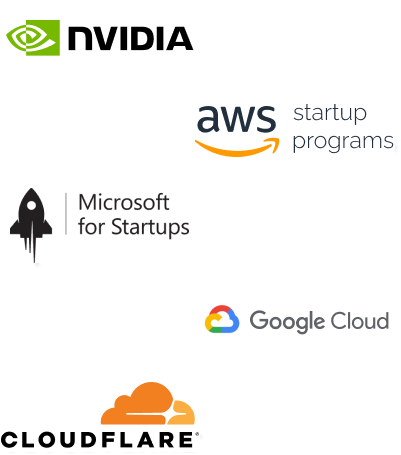- Home
- Services
- IVY
- Portfolio
- Game Dev
- Blogs
- About Us
- Contact Us
- Sun-Tue (9:00 am-7.00 pm)
- infoaploxn@gmail.com
- +91 656 786 53
From diagnosing diseases to generating art and music, AI isn’t just a technological trend—it’s a revolution that’s changing everything. But AI isn’t just one thing; it encompasses a range of technologies, capabilities, and applications. In this article, we’ll explore the different types of AI, how they’ve developed, and how they’re making a difference in the world today.
Table of Contents
At its core, artificial intelligence (AI) refers to machines designed to mimic human intelligence. These systems use complex algorithms and data-driven insights to process information, make decisions, and sometimes even learn from experience. The goal of AI is to create technology that can think, reason, and adapt similarly to humans.
AI has progressed over the years, from simple rule-based systems to advanced self-learning models. Today, AI is not just about following pre-set commands—it’s about enabling machines to understand, predict, and respond with human-like intelligence.
AI’s potential is transformative. It’s used to automate repetitive tasks, enhance decision-making, drive innovation, and even perform complex, dangerous operations that would be challenging for humans. Here’s why AI is so crucial:
AI is already embedded in many of the devices and systems we use daily. According to TechJury, 77% of the devices we interact with feature AI in some form. So, whether we notice it or not, AI is impacting our lives in significant ways.
The concept of artificial intelligence isn’t new. It goes back centuries to philosophers and mathematicians who envisioned machines capable of reasoning. Here’s a quick timeline:
AI research has evolved at a rapid pace, and what was once limited to academic curiosity is now driving innovation across industries.
Artificial intelligence can be classified into different types based on capability and functionality. Let’s look at each of these categories and what sets them apart.
Most of the AI we interact with today is Artificial Narrow Intelligence (ANI), often referred to as Narrow AI. This type of AI is designed to excel in a specific area or task, such as filtering spam, recommending movies, or recognizing speech. While ANI can perform its assigned job impressively well, it’s limited to that specific domain and doesn’t learn or adapt beyond it.
Artificial General Intelligence (AGI), also known as General AI, represents the next big leap in artificial intelligence—AI that can perform any intellectual task that a human can. AGI would be capable of understanding, learning, and adapting across a wide range of tasks, similar to the way we humans do.
Though AGI doesn’t yet exist, it’s the focus of a lot of research, as it would have far-reaching applications and the ability to tackle complex challenges across various domains.
Artificial Super Intelligence (ASI) represents a type of AI that doesn’t just match human intelligence—it surpasses it in every way. ASI would theoretically be more capable than humans across all domains, including creativity, social skills, and problem-solving.
While ASI remains speculative, it raises fascinating questions about the future of AI and its ethical implications. Could ASI operate independently of human control? Would it align with human values?
The simplest type of AI is the Reactive Machine. These systems are task-specific and react to specific inputs with pre-defined outputs. They operate strictly in the present, processing current information but lacking any memory of past events or ability to learn.
Limited Memory AI can make decisions based on past experiences and historical data. This type of AI can analyze data, retain it temporarily, and use it to improve future decisions. Most of the AI applications we use daily, such as recommendation systems or self-driving cars, fall under Limited Memory AI.
Theory of Mind AI is a type of AI that aims to understand human emotions, beliefs, and intentions. This level of AI would be able to interpret the emotions and mental states of others and adjust its responses accordingly, making interactions more meaningful and personalized.
Though we haven’t fully developed Theory of Mind AI yet, researchers believe it could be transformative for fields that require emotional intelligence, such as mental health support, education, and customer service.
Self-Aware AI is the hypothetical peak of AI development—AI that would possess self-awareness, consciousness, and a sense of identity. While we haven’t yet achieved Self-Aware AI, it raises exciting philosophical and ethical questions about what it would mean for a machine to think, feel, and perhaps even have its own goals.
AI is built on several core components that work together to enable machines to process information, learn, and make decisions. Here’s an overview of the main elements:
These components are essential for AI’s functionality, enabling everything from simple calculations to complex decision-making.
AI has found its way into virtually every industry, and its applications are expanding rapidly. Here are some examples of how AI is used in various fields:
AI is transforming healthcare with applications like diagnostics, personalized medicine, and predictive analytics. For instance, IBM’s Watson helps doctors analyze vast amounts of data to recommend treatments, while computer vision aids in early detection of diseases through medical imaging.
AI chatbots and virtual assistants enhance customer experience by providing instant support and resolving common issues. With natural language processing, these AI systems can understand user intent and respond accurately, improving efficiency and user satisfaction.
In finance, AI algorithms detect fraud, assess creditworthiness, and help with risk management. AI-driven trading systems analyze market trends in real time to make data-informed decisions, providing a competitive edge in investment strategies.
Streaming platforms like Netflix and Spotify use AI to recommend movies, shows, and music based on user preferences. These AI systems analyze viewing and listening patterns to deliver a personalized experience that keeps users engaged.
Robots and AI-driven systems are revolutionizing manufacturing by automating assembly lines, managing quality control, and improving safety. AI also helps in predictive maintenance by analyzing machinery data to detect potential issues before they escalate.
AI-powered tools in education provide personalized learning experiences, helping students learn at their own pace. AI can adapt educational content based on each student’s strengths and weaknesses, making learning more effective and engaging.
As AI technology advances, its potential impact on society becomes even more significant. Here are a few possible directions AI may take in the future:
Artificial intelligence is reshaping our world, from enhancing everyday convenience to tackling complex global issues. But as AI becomes more advanced, understanding its types, applications, and potential impact is essential to making the most of this technology responsibly.
Whether we’re interacting with a simple AI assistant or envisioning the future of superintelligent AI, one thing is clear: AI is here to stay, and its influence will only grow. As AI continues to evolve, so will its applications, pushing the boundaries of technology and innovation in ways we’ve only begun to imagine.
If you’re interested in exploring the possibilities of AI for your business or want to understand how it can create smarter solutions, Indus Valley Technologies is here to help. With a focus on cutting-edge AI development, Indus Valley Technologies specializes in transforming innovative ideas into practical, AI-driven solutions across industries.
Imagine reducing your operational costs by up to $100,000 annually without compromising on the technology you rely on. Through our partnerships with leading cloud and technology providers like AWS (Amazon Web Services), Google Cloud Platform (GCP), Microsoft Azure, and Nvidia Inception, we can help you secure up to $25,000 in credits over two years (subject to approval).
These credits can cover essential server fees and offer additional perks, such as:
By leveraging these credits, you can significantly optimize your operational expenses. Whether you're a startup or a growing business, the savings from these partnerships ranging from $5,000 to $100,000 annually can make a huge difference in scaling your business efficiently.
The approval process requires company registration and meeting specific requirements, but we provide full support to guide you through every step. Start saving on your cloud infrastructure today and unlock the full potential of your business.

